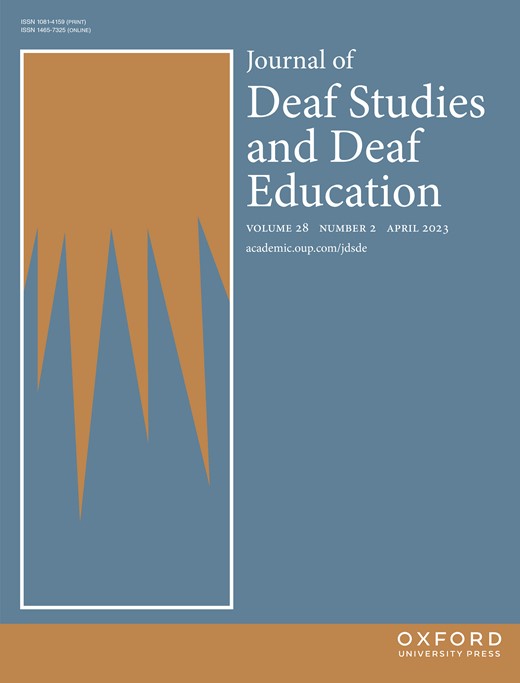-
Views
-
Cite
Cite
Aleah S Brock, Sandie M Bass-Ringdahl, Coaching Caregivers of Children who are Deaf or Hard of Hearing, The Journal of Deaf Studies and Deaf Education, Volume 28, Issue 2, April 2023, Pages 146–161, https://doi.org/10.1093/deafed/enac048
Close - Share Icon Share
Abstract
This study explored the impact of a caregiver training intervention on caregivers’ use of individually selected facilitative language techniques (FLTs) with their children (ranging from 14 to 27 months of age) who were deaf or hard of hearing. In addition, the study sought to identify real-time relationships between caregiver input and child output. Finally, the Language ENvironment Analysis (LENA) system was used to assess generalization of intervention gains to the natural environment. Intervention was delivered via a telehealth approach to train four caregivers to utilize a targeted FLT with their child. Pre-baseline LENA recordings guided selection of treatment targets, and post-intervention LENA recordings were used to assess generalization to the natural environment. All caregivers demonstrated increases in use of their targeted FLT in structured intervention sessions and maintained them 2–6 weeks after the conclusion of intervention. All children demonstrated an increase in their developmentally appropriate vocalizations in tandem with caregiver FLT increases. Results indicate that coaching can be used to increase caregiver responsiveness, changes which were found to carry over into the home environment.



